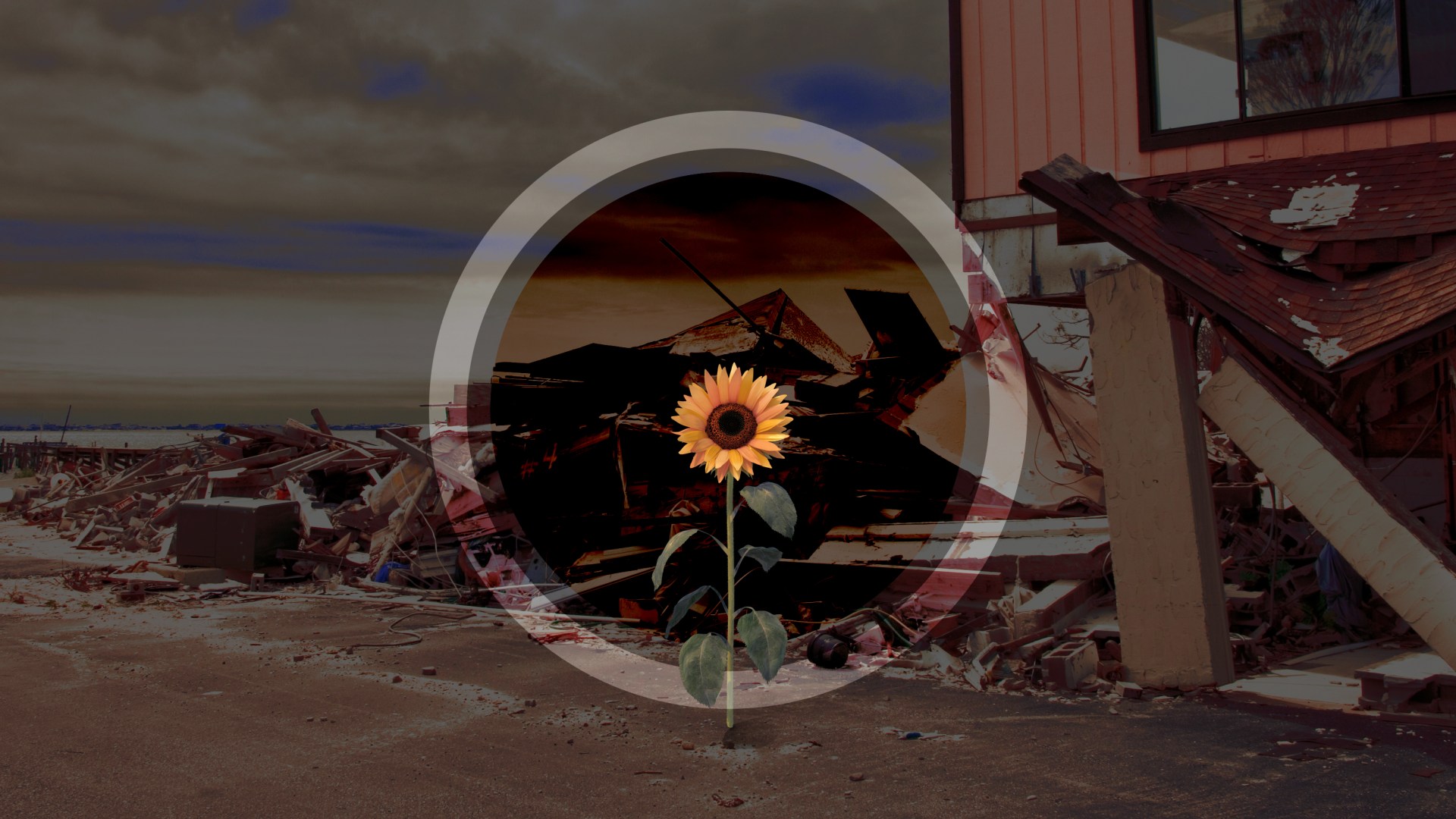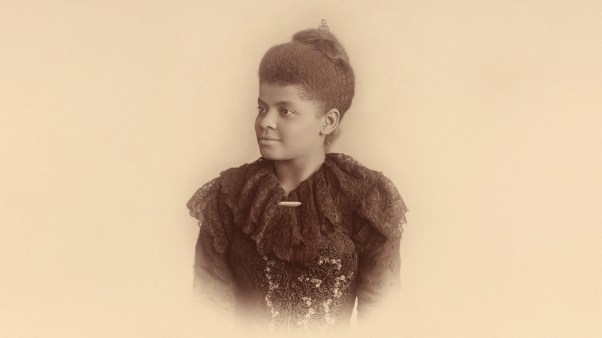My friends lost their home earlier this year when a tornado carved through their neighborhood. There’s a lonely pine tree still standing in the side yard beside where the house used to be. The deep pit of dirt that was their basement is now laid bare, exposed under the Tennessee sky.
Workers have dug an outline around the edges of a new house that will soon rise where the old house once stood. Over the past few months, as my friends have gotten the architectural plans together, rogue clusters of wildflowers have grown up all around. Purple, white, and green shoots bursting from wind-blown seeds have taken up residence in the basement soil that had long been in darkness.
Creativity grows in the cracks of our chaos.
In Genesis 1, the Spirit of God is there at the birth of the world, poised above a void: “In the beginning God created the heavens and the earth. Now the earth was formless and empty, darkness was over the surface of the deep, and the Spirit of God was hovering over the waters” (vv. 1–2).
This is not a hurried or frantic image. The Holy Spirit broods like a mother bird with outstretched wings sheltering the nothingness, patiently bringing order and shape to the land and sea.
There’s comfort in seeing these wildflowers grow where a home has become a memory. New life still blooms amid uncertainty, even when we don’t fully understand what’s happening to us. Wildflowers do not apologize for our loss, nor do they diminish our grief. But their gentle sway reminds us that when our best plans seem formless and void, God’s Spirit is hovering near, calling something good to grow.
From what Scripture records of the early church, we learn that the Spirit of God is a fire (Acts 2:3), an advocate (John 14:16), and a power (Eph. 3:16). But in our present moment—when our health and the economy and so many institutions feel as vulnerable as a home before an approaching tornado—I am grateful that we are introduced to the Spirit of God in the earliest pages of the Bible as a maker.
If the Holy Spirit is a maker, constantly at work around us and building something new from what once was, then we can be still and expectant, even when we feel alone in times of uncertainty.
When Mary receives the promise of the angel in Luke 1:35–38, she is afraid yet receptive. She says yes by faith without hesitation when confronted with God’s promise, even though she doesn’t understand how the promise will come to be.
We too, by the Spirit, are called to say yes to God’s creative, life-giving work, even though our yes sometimes comes by way of tears.
When our schedules are wiped out by illness, when loss of work and disappointment weigh us down, God demonstrates his mercy with each sunrise, the falling of the leaves, and the promise of spring’s return. God gave the land and the seas their limits. He gives us each day, each night, and four seasons to mark our days (Psalm 104). When our plans for the weeks and months ahead are put on hold, the natural boundaries of creation hold us securely in rhythm.
We do not have to be skilled with a paintbrush or proficient on a musical instrument to tangibly reciprocate God’s creative gifts back to him. Giving shape to a garden or making a financial spreadsheet can fuel creativity in chaos. When closest friends are scattered by distance, we can mail a word of encouragement. When we are overwhelmed by fear, we can journal our grief and gratitude, testifying to God’s presence in our daily lives and remembering that he is making order out of chaos, like the Spirit over the deep waters.
Small, creative offerings are more than just self-expression. To make is to be an image-bearer of God. Here we see evidence of the Spirit’s renewal within us. God is always at work, even beyond what we can see or understand. In Creation, with Mary, and in the days of the early church, the Spirit of God is with us.
By the time these words are published, the wildflowers that grew in my friends’ dirt basement will be covered over by a new foundation. Inside that new foundation will be a new room with an improved tornado shelter. A new beginning in a stronger home will someday be a reality. This is, in fact, what the Spirit is steadily working toward for all of us—a new home that cannot be touched by fire or storm.
Sandra McCracken is a singer-songwriter who lives in Nashville. Follow her on Twitter @Sandramccracken.










